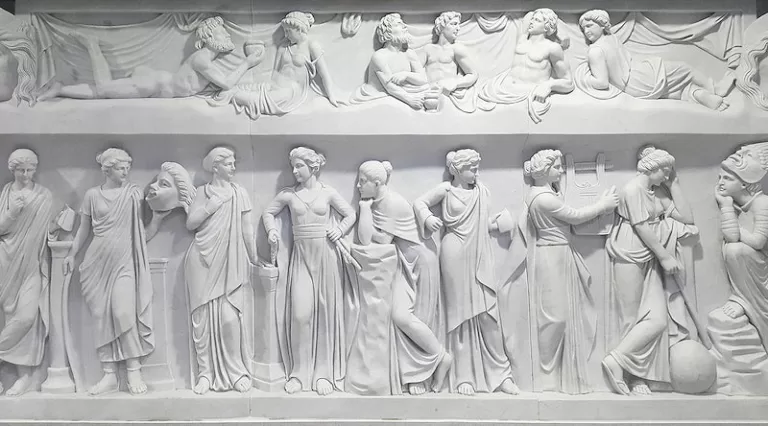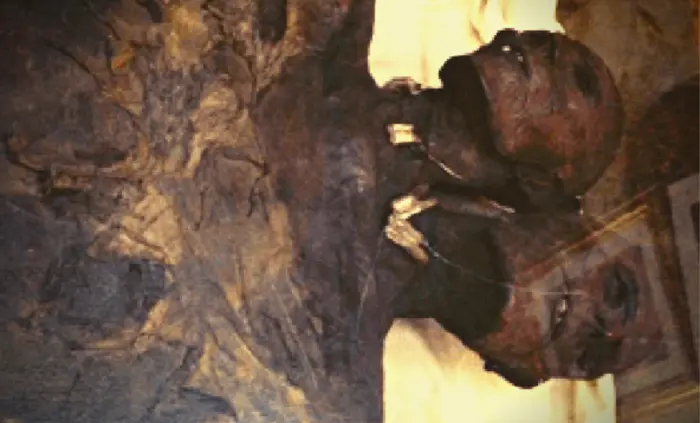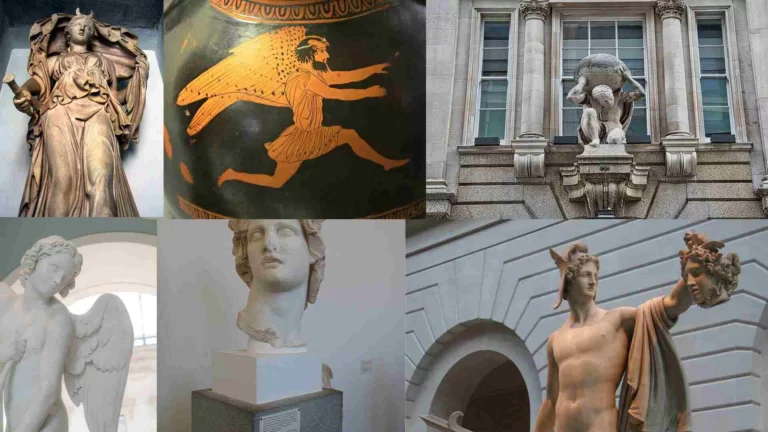The Role of Anubis, The Egyptian God of the Underworld.
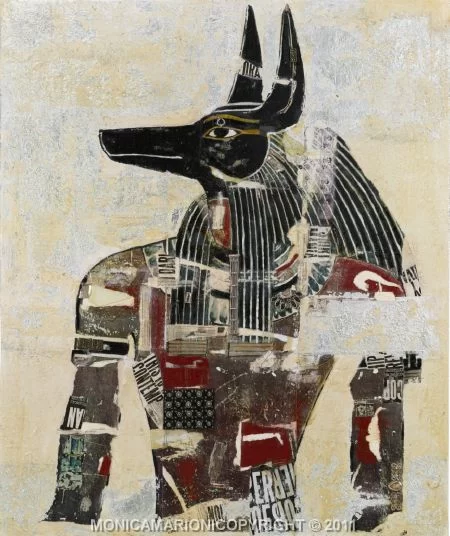
The Egypt of antiquity was a culture steeped in mythology, with divine tales of gods and goddesses ascendant above the realm of humanity. An oft-featured protagonist in this intense drama was Anubis. He was the lord of the dead during the Early Dynastic and Old Kingdoms. Although Osiris eventually eclipsed him. His central challenges were the funeral cult and the care of the dead. He was said to have invented embalming, which he initially practiced on the body of Osiris. Anubis is the Egyptian god of the underworld and dead.
He was one of the more fascinating aspects of the gods of ancient Egypt because of his:
- mysterious origins
- symbolic representation within various artifacts
- significant presence in the stories
Origins of Anubis
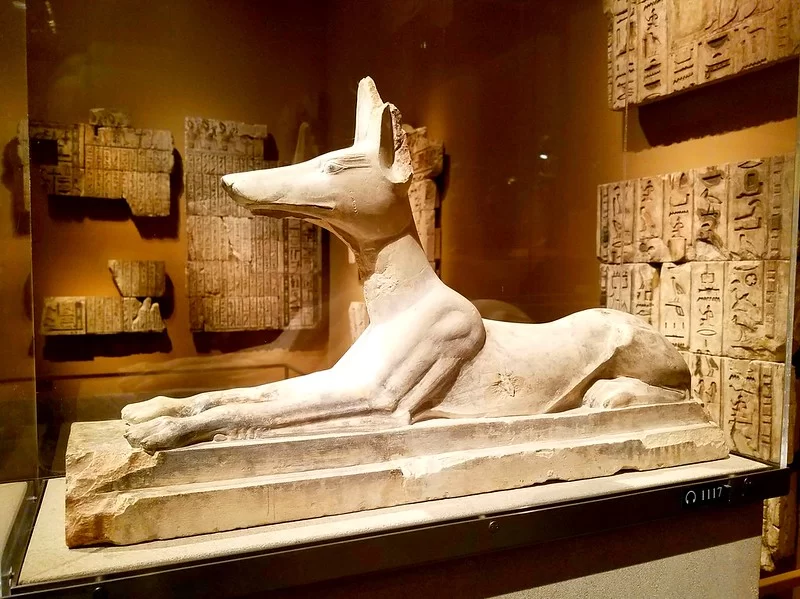
Anubis, also known as Anpu, Anup, and jnpw, is a major figure in the mythology of ancient Egypt. According to differing accounts, Anubis is usually associated with the God of the Underworld, or “Necropolis.”
The Greek name of the famous Egyptian city “Thebes” was once called “Anup,” and this appears to have later become “Anubis” in the formal language. Anubis’s exact source and origin remain unclear, but he is likely derived from the Proto-Egyptian word “Anpu.
” This word likely referred to the area of the Sahara desert where herds of jackals dwelled and where the god of the dead, Duamutef, was worshipped.
Role of the Egyptian god of the underworld in Egyptian Mythology
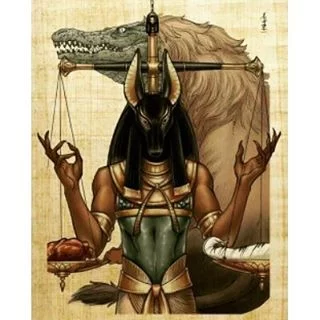
Anubis god of the underworld is among the oldest gods in all of ancient Egyptian mythology. He was a god of the dead who vigilantly monitored the souls of men and guarded the entrance to the underworld.
He invented the mummification technique and taught it to the Egyptian people. Researchers formerly believed that Anubis was created sometime during the Predynastic era when Egyptian civilization began.
He is often symbolized by a black jackal, a canine creature found across North Africa and the Middle East. Many archaeologists think that the real-life jackals that dug up bodies that weren’t buried deeply enough were the inspiration for the god Anubis.
He was also responsible for leading souls before the gods of the underworld. Additionally, it was believed that Anubis was the son of Nephthys and Osiris, who, according to ancient mythology, was the father of all the gods.
Symbolic Representations of Anubis
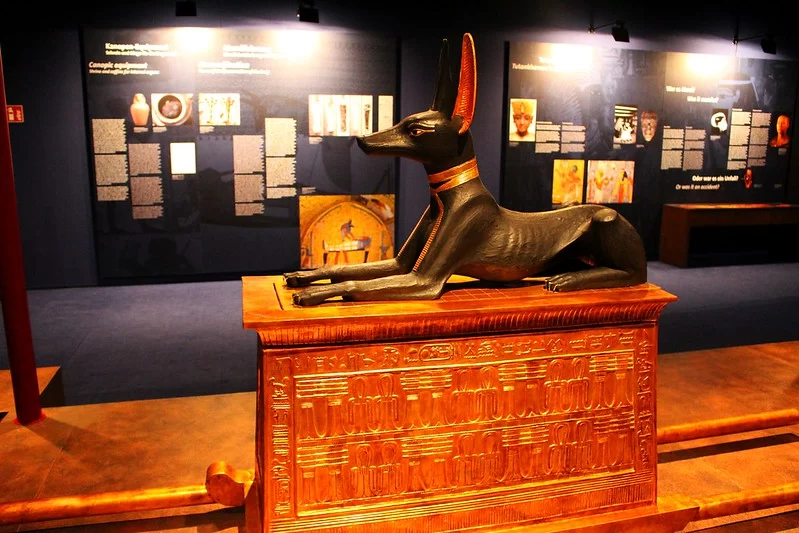
In the artwork of ancient Egypt, Anubis was typically -piodepicted with a human body and the head of a jackal, wearing a ceremonial headdress and an animal-hide cape.
He was also often depicted with a tall staff in his hand, typically either an ankh or a flail. This staff represented his power and authority over the underworld gods. Additionally, Anubis was often shown with a stela known as a “kios.”
This was typically a funerary sculpture placed in the ancient Egyptians’ tombs to mark the site of a spirit’s passage to the afterlife.
Cult Following of Anubis
Though many gods were worshipped in ancient Egypt, Anubis was the most popular god of the underworld in Egypt. Anubis had a large cult following in Egypt and beyond. He was often revered as a protector of embalmed bodies and the guardian of tombs.
Researchers believe that Anubis was able to bring the dead back to life. As such, he was highly respected by those who passed away. The ancient Egyptians also believed in the power of Anubis to recognize souls beyond the grave.
When a person passed away, it was believed that Anubis would help the spirit find its way to the afterlife.
Anubis’s Symbolic Significance in Modern Times
Though Anubis’s cult following is no longer active in modern times, he remains a prominent figure in myth and legend due to his iconic place in Ancient Egyptian mythology.
Anubis continues to occupy a place of poetic and symbolic significance in the minds of many. His presence in mythological stories speaks to the power of death as a force of nature and transformation.
Anubis’s popularity also persists today in symbolism, such as pop culture renditions, tarot cards, and tattoos. It bears witness to his timeless power and influence.



